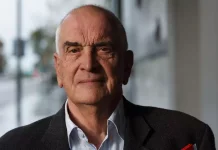Christian leaders in the Sudan are taking a wait and see approach following the ouster of President Omar al-Bashir by the military, and are hopeful the Islamist leader’s departure will lead to a relaxation of the regime’s uncompromising attitude towards the church.
In an interview with AFP this week, the Archbishop of Khartoum and primate of the Episcopal Church of the Sudan, the Most Rev. Ezekiel Kondo, stated the government of President al-Bashir persecuted Christians, destroying their churches, arresting their clergy and shuttering their schools in the name of Sharia law.
In 1989 Brigadier al-Bashir led a military coup that toppled the democratically elected government of Prime Minister Sadiq al-Mahdi after it began negotiations with rebels in the south. Since seizing power President al-Bashir and his National Congress Party were returned to office in three elections that foreign observers claimed were marred by fraud. In March 2009, President al-Bashir became the first sitting president to be indicted by the International Criminal Court (ICC), for allegedly directing a campaign of mass killing of between 200,000 to 400,000 civilians in Darfur.
While Sudan’s constitution endorses freedom of religion, the al-Bashir government actively persecuted Christians. Archbishop Kondo noted: “the state has consistently followed a strategy to weaken the Church” whom it blames for the independence of South Sudan.
Beginning in December 2018 large-scale protests erupted in Khartoum demanding his ouster. On 11 April 2019, President al-Bashir was removed from power in a military coup.
On 17 August 2019 an agreement was signed between the new military junta and civil opposition leaders that provides for the creation of a Sovereign Council composed of six civil representatives and five soldiers, in charge of leading the country up to democratic elections, within 39 months. Christians are optimistic the Council may end the second class status of Christians, as the interim constitution does not mention Sharia law and does not declare the Sudan to be an Islamic state.
Church leaders also note the appointment of a Christian woman to the 11-member council is a hopeful sign the new government will acknowledge the rights of the Christian minority.
Archbishop Kondo hopes the new government will recognize the civil rights of Christians, granting them the right to build churches and administer their own schools. However, “A document alone does not alleviate people’s suffering. For this transition to work, peace has to happen. Then all the other important things will come more easily,” he ssaid.
“If the transition’s principles are really implemented, then yes, we will have change,” the archbishop said. “But I am still quite pessimistic because the Islamist mentality is still here”.










